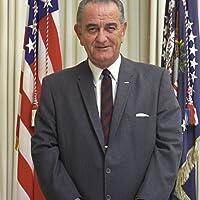
Lyndon B. Johnson
Sull'autore
Lyndon B. Johnson was the 36th President of the United States, serving from 1963 to 1969. He assumed office following the assassination of John F. Kennedy and is known for his ambitious domestic agenda known as the Great Society, which aimed to eliminate poverty and racial injustice. Johnson's presidency was marked by significant legislative accomplishments, including the Civil Rights Act of 1964 and the Voting Rights Act of 1965, which transformed American society by promoting equality and expanding civil rights for all citizens.
In foreign policy, Johnson is often remembered for escalating U.S. involvement in the Vietnam War, a decision that would lead to widespread protests and ultimately impact his popularity. Despite the challenges he faced, Johnson's legacy remains influential, particularly in the realms of social policy and civil rights. His ability to navigate Congress and create coalitions allowed for the passage of landmark legislation that shaped the modern welfare state, making him a pivotal figure in American history.